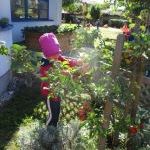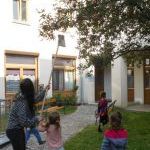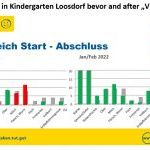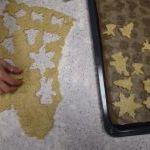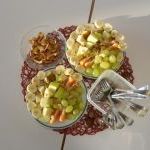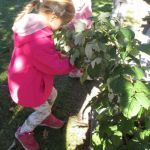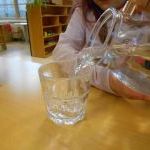Vital Kitchen
Schools, kindergartens and after-school care centres in Lower Austria are supported in the Vital Kitchen programme for one to two years to make their meals healthier and more sustainable. The process starts with an initial analysis of the offer. A steering group consisting of headmaster, teachers, caterers and representatives of municipality sets goals for the improvement of the food. These goals might include regional sourcing and purchasing, the reduction of food waste and tap water replacing soft drinks as a drink. At the same time, the pupils are familiarised with the topic of sustainable food through educational activities such as farm visits, gardening and food tasting. If the implementation is successful, the school and the caterer receive an award.
How is the project linked to climate change & sustainability?
Catering with regional, seasonal and organic food, waste reduction and smaller meat servings all have an impact on sustainability. Also, re-establishing the connection between students and cooks and the origin of their food is regarded as an important means to bring sustainability concepts into action. In the programme, there are about three hundred schools and kindergartens. All of them reduce meat servings to a maximum of two per week. Alongside this, they serve more pulses, local and regional products and have to prove all this regularly.
Who is involved?
Children, parents, teachers, school management, caterers, school communities and local authorities are all involved. The programme is free to join and is organised and financed by the “tutgut Gesundheitsförderung GmbH” in Lower Austria.
How are the participants involved?
The project starts with a self-evaluation of the school's food quality, followed up by target setting by a steering group comprised of the head teacher, teachers, caterers and local authority representatives. Educators address the specific needs of the target group and identify how they can support the children to eat a wider variety of food. Pupils communicate their wants and needs and engage with the sustainable food menu. Children work in the kitchen and the garden where they harvest what has grown in the garden. Caterers address the criteria for sustainable and healthy children's meals, make local and regional food purchase and integrate new dishes into the menu. Changes to the menu are regularly communicated with the pupils. Parents are also informed of changes to the menu and are encouraged to get involved and support the children.
Key steps
- Schools and kindergartens apply to join the project.
- Initial talks and signing of contract to ensure compliance.
- Establishment of a steering group.
- Definition of goals and implementation steps.
- Consultation with the kitchen team on purchasing and menu planning.
- Several steering group meetings to plan educational work.
- Final analysis after two years.
- Certificate for the school or kindergarten and the caterer in case of successful implementation.
- Quality assurance requires two steering group meetings per year and compulsory further training for the kitchen team and teachers per year.
- Recertification after another two years
“In all the kindergartens and schools - among the children, the teachers and in the kitchens - I see how the project increases the appreciation of healthy, sustainable local food.” Karin Kaiblinger – project manager & expert
Website
Country
Media
Photo by Municipality Loosdorf
Useful links:
The UK Cool Food Pro project aims to help caterers become more sustainable and climate-friendly
Food for Life Served Here provides a framework for school caterers in the UK to serve healthy and sustainable meals
Food for Life Served Here in Scotland:
* TOP TIP *
Review the school menu and identify where food waste can be reduced.

